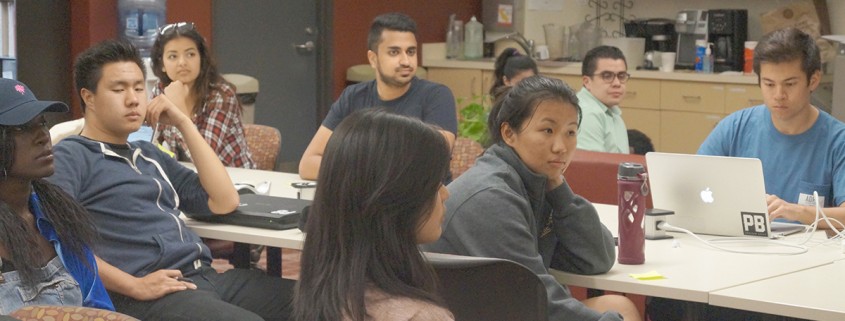Bylaw proposed to diversify USG events
Undergraduate Student Government Sens. Giuseppe Robalino and Eric Dubbury have proposed a new bylaw that aims to diversify USC Program Board-sponsored events. The presentation of and voting on the third and final version of the bylaw will occur at the Senate meeting on March 29.
This bylaw has gone through three different drafts. The first version required a significant check on the USC Program Board, including a review by the Senate of particular events that were not promoting intellectual diversity. These events would then be either canceled or moved to a later date if found offensive to all ideologies of students. However, in case of a disagreement, Program Board would have the ability to appeal it to the judicial council.
“We wanted to make sure that [the bill] was fair and constructed correctly,” Robalino said. “So that we as the senators representing 18,000 students would be able to effectively represent all those students through the Program Board that is elected by a narrower constituency but receives money from everyone.”
Even though the Senate has the right in the bylaws to pass a bylaw change with a two-third vote, the senators wanted to make sure they were cooperating with everyone in the office.
Robalino and Dubbury decided to create a second version in response to Program Board considering the first version “too strong.” The second version was an open document, where Robalino removed the judicial council and review of the Senate on Program Board events. Since telling Program Board to cancel or postpone controversial events was the most divisive aspect of the bylaw, the Senators decided to remove that as well.
“We have had a lot of people come out regarding this bylaw because USG has recently been in a lot of contentious political controversy,” Robalino said. “Thus, it has been getting a lot of attention from the school and also national media.”
Program Board Executive Director Diana Jimenez could not be reached for comment.
Dubbury and Robalino are currently in the process of writing the final draft of the bylaw, which will include the involvement of all branches of USG in order to create diverse programming.
“They will come together and bring in ideas that will help create an open space, such that they are programming to all students,” Robalino said. “You are getting money from all 18,000 students. This can give people the opportunity to present ideologies from all partisan backgrounds.”
Each student pays $63 as part of their annual tuition to fund USG. Apart from going to the funding board of USG, a vast majority of it goes to Program Board. Dubbury and Robalino’s goal is to hold USG accountable in order to represent as many students as possible.
“We are talking about tens of thousands of dollars,” Robalino said. “There are branches in Program Board that receive $50,000 to $70,000. We want to make sure we are using this responsibly.”
However, some students questioned the necessity of this bill. Robalino argues that it is an essential step in order to protect student voices.
“‘Was this bylaw even needed?’ was the question I kept getting from Program Board,” Robalino said. “Though Program Board has enjoyed a lot of flexibility and freedom, we are trying to improve our quality of the student body. We want to improve and expand the conversation and make it accessible to more students.”
Robalino also responded to comments that the bill is trying to make Program Board more conservative.
“We are not asking to silence voices,” Robalino said. “If anything, we welcome the discussion of these varying opinions. It’s just when we talk on a nation-wide scale and making sure that when you are a member of an organization, you are not discriminative about race, origin or religion.”
In regard to events that led to the creation of this bylaw, Robalino spoke about an incident where people from the LGBT and other minority communities have told him how they don’t feel that they are always represented.
“They told me that they wouldn’t join certain organizations because their language turns them off,” Robalino added.
The senators are working on coming up with a bylaw that everyone will agree with.
“We have postponed officially presenting the proposal. We are on the third version right now and the first two that we had have not been formally presented,” Robalino said. “Before we present it, we want to start a buzz in the office and want the office to be aware that we are not trying to ram something through and just surprise them.”
Robalino wants to give people time to think about it because the second time when they had the opportunity to get more comments on the open document, the response rates were very low. Consequently, they postponed the official presentation of the third version.
“Over time, we hope to create a culture of openness and inclusion at the events so that we have a healthy disagreement,” Robalino said. “The composition of the groups in USG are diverse, but there is a trend to fall in one direction. Thus, we are there to remind them of the diversity they are committed to.”

